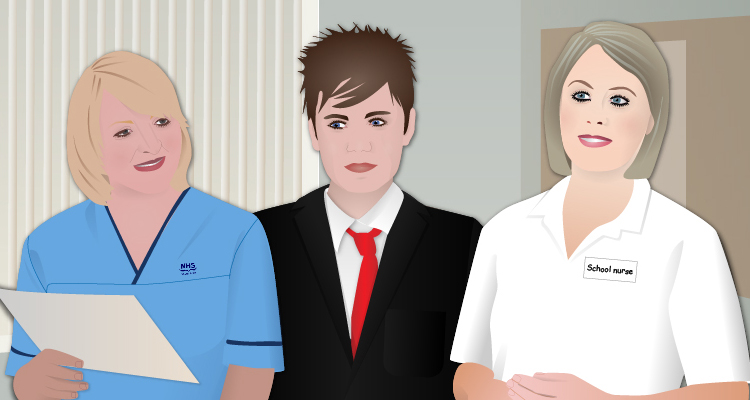
HCM is a life-long condition and, now that he has been diagnosed, Andrew has to think about the implications of this for his future lifestyle.
Andrew, the arrythmia nurse and the school nurse draw up a Care Plan, which outlines Andrew’s condition and treatment.
| Hypertrophic Cardiomyopathy / School Care Plan Template | |||
|---|---|---|---|
| Child’s name: | Andrew | DOB: | 21/03/2000 |
| School: | Dundee Academy | ||
| Diagnosis: | Hypertrophic Cardiomyopathy (HCM) | ||
| Procedures: | Subcutaneous – Implantable Cardiac Defibrillator (S-ICD) | ||
| Condition: | HCM is a disease resulting in excessive thickening (hypertrophy) of the hearts muscle. This condition is progressive and thickening of the muscle can become worse over time resulting in the development of symptoms. HCM may affect the way in which the heart muscle pumps; the heart muscle becomes weak and ineffective at pumping blood around the body. As the heart muscle thickens this can also cause obstruction of blood flow so that too little blood is pumped out of the heart and around the body. HCM also predisposes to changes in the heart’s rhythm which may lead to collapse, loss of consciousness and sudden cardiac death. |
||
| Potential Symptoms: |
|
||
| Medications: | Should changes in the heart rhythm occur medications are taken to control the heart rhythm and reduce the risk of collapse occurring. Andrew is taking medications to control his heart rhythm. This slows his heart rate and prevents changes that could precipitate fainting or the above mentioned symptoms. This medication is called Bisoprolol. Andrew also takes Ramipril to improve his heart function. | ||
| Daily Activities: | Andrew should participate in gentle sporting activities and should be allowed to self limit and sit out when needed.
Andrew should also avoid competitive/highly intense physical exercise and contact sports. It has been agreed that he can play football for leisure purposes but not at a competitive level. Andrew should attend school as normal and should be encouraged to fulfil his potential. He should be treated as normally as possible. Andrew will also need time off school to attend outpatient appointments. |
||
| Emergency Treatment: |
|
||


